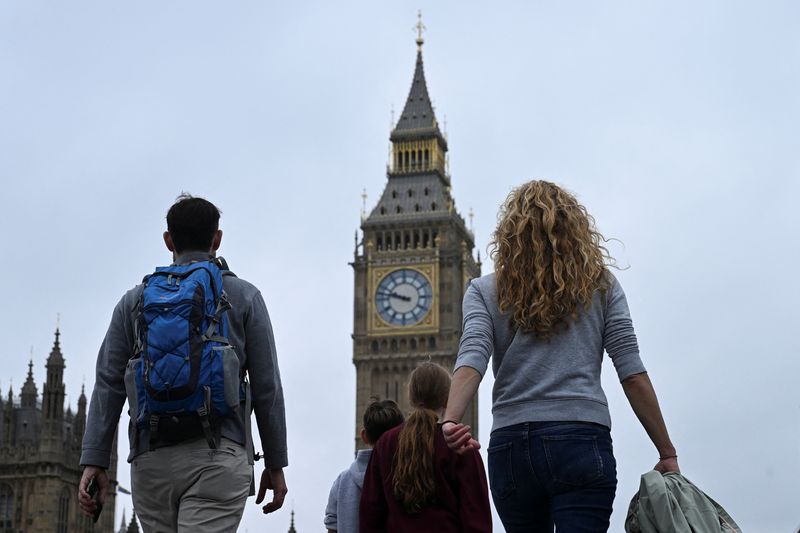UK consumers take fright as new government warns of pain, survey shows
2024.09.19 19:15
LONDON (Reuters) – British consumers have turned more pessimistic after warnings by new Prime Minister Keir Starmer about the economy and the public finances which might entail tax increases, according to a survey published on Friday.
The GfK Consumer Confidence Index, the longest-running measure of British consumer sentiment, dropped to a six-month low of -20 in September from August’s -13, which was the joint-highest in nearly three years.
The seven-point drop was the biggest since April 2022, shortly after Russia’s invasion of Ukraine.
A Reuters poll of economists had pointed to another reading of -13.
Neil Bellamy, Consumer Insights Director at GfK, said households appeared to be responding to the messages by Starmer about the need for a “painful” budget due at the end of next month and the announcement of some early cost-cutting measures.
Finance minister Rachel Reeves said in July that she would strip a 200-pound ($265) annual fuel subsidy from 10 million pensioners and warned taxes were likely to rise by more than she had judged necessary just weeks earlier, before the election.
“Following the withdrawal of the winter fuel payments, and clear warnings of further difficult decisions to come on tax, spending and welfare, consumers are nervously awaiting the Budget decisions on Oct. 30,” GfK’s Bellamy said.
All five measures of confidence fell this month with views on the economy over the coming year down by 12 points, GfK said.
“Despite stable inflation and the prospect of further cuts in the base interest rate, this is not encouraging news for the UK’s new government,” Bellamy said.
The Bank of England kept interest rates on hold on Thursday after a rate cut in August, but Governor Andrew Bailey said he was optimistic that the central bank would lower rates further.

The GfK survey of 2,003 people took place between Aug. 30 and Sept. 13.
($1 = 0.7558 pounds)








